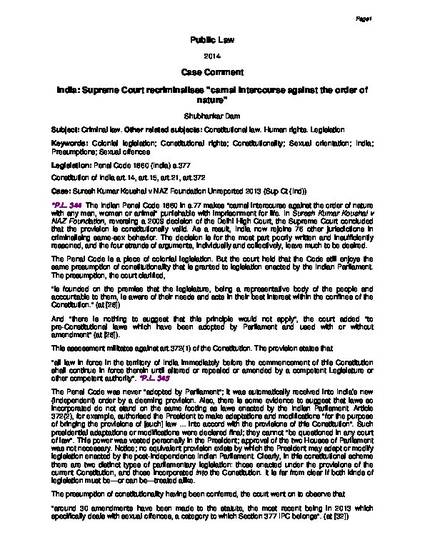
Article
India: Supreme Court recriminalises "carnal intercourse against the order of nature"
Public Law
(2014)
Abstract
The Indian Penal Code, 1860 in s. 377 makes “carnal intercourse against the order of nature with any man, woman or animal” punishable with imprisonment for life. In Suresh Kumar Koushal and another v. NAZ Foundation and others, reversing a 2009 decision of the Delhi High Court, India's Supreme Court concluded that the provision is constitutionally valid. As a result, India now rejoins 76 other jurisdictions in criminalizing same-sex behavior. The decision is for the most part poorly written and insufficiently reasoned, and the four strands of arguments, individually and collectively, leave much to be desired. This comment for the survey section in Public Law teases out the four principal lines of arguments, highlights their analytical inadequacies, and argues that the matter should be reheard.
Keywords
- Colonial legislation,
- Constitutional rights,
- Homosexuality,
- India,
- LGBT Rights,
- Sexual offences,
- s 377 Indian Penal Code,
- Suresh Koushal,
- Carnal intercourse against the order of nature,
- Naz Foundation
Disciplines
Publication Date
April, 2014
Citation Information
Shubhankar DAM. "India: Supreme Court recriminalises "carnal intercourse against the order of nature"" Public Law (2014) Available at: http://works.bepress.com/shubhankar_dam/17/
